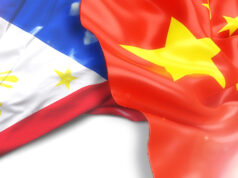DENR to implement stricter penalties to protect Coral Triangle
THE DEPARTMENT of Environment and Natural Resources (DENR) will be enforcing stiffer sanctions on companies that will be found to be polluting bodies of water near the Coral Triangle, as part of the country’s contribution to the Coral Triangle Initiative on Coral Reefs, Fisheries and Food Security (CTI-CFF).
DENR Director for policy, planning and international affairs Jonas R. Leones said on the sidelines of the CTI-CFF 13th senior officials’ meeting at the Dusit Thani Hotel Makati on Thursday, Nov. 30, that the country’s concern for the protection of the Coral Triangle is not only for environmental purposes but for food security as well.
The Coral Triangle refers to an area in the tropics covering the waters of Indonesia, Malaysia, Papua New Guinea, the Philippines, Solomon Islands and Timor-Leste.
“Can you imagine under this Coral Triangle, at least 120 million people are depending on this in terms of food and other things. Of course, we won’t be forgetting the environmental consideration. If we will allow the continued destruction of the Coral Triangle, then a lot will die, a lot will be affected,” he added.
Mr. Leones said that the focus on public educational campaigns on the importance of environmental conservation should be more on companies as these are the biggest contributors to pollution, rather than the coastal area residents, whom he considers as victims of environmental degradation.
Various Philippines laws are intended to protect the country’s bodies of water, one of which provides for penalties such as imprisonment and paying a P500,000 fine for corporations found guilty of polluting waters with chemical waste. Foreign firms will be banned from entry and will have their licenses revoked.
“Perhaps the biggest contribution they (coastal area residents) can give us is to monitor and inform the government agencies that there are polluters in the environment,” Mr. Leones said.
“They can become bantay-dagat (sea patrollers) and I believe that most or majority of our coastal communities are already aware of the importance of this because they’re getting their income, their food (from marine resources).”
The Philippines is one of the six member states that make up the CTI-CFF, which was formed in 2009 by former Indonesian president Susilo Bambang Yudhoyono, having partial jurisdiction over the waters of the Coral Triangle, which houses 53% of the world’s coral reefs.
This year, the Philippines contributed $198,599, just $12 short of the required contribution, to the CTI-CFF Regional Secretariat, which will be used for the CTI-CFF’s regional activities and other policies that will be adopted after the meeting.
One of these being the measure to ensure that there would be no misuse of the organization’s funds.
“We are always thinking for a need to come up with a very transparent financial guideline or procedures to ensure whatever resources we get from the donor partners and industries are used wisely and properly,” Mr. Leones said.
Donors include the Australian Government, Conservation International, United States Agency for International Development, the academe and members of the private sectors.
“[We have] annual activities [that] are being undertaken properly and in accordance with the schedules, in accordance with the financial rules and regulations so that’s what we’re monitoring. We’re not looking at it only annually but as a regional plan of actions — and that’s five years,” Mr. Leones said. — Anna Gabriela A. Mogato



